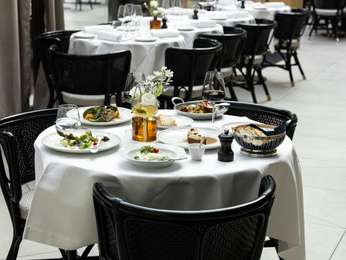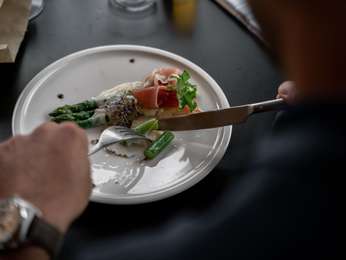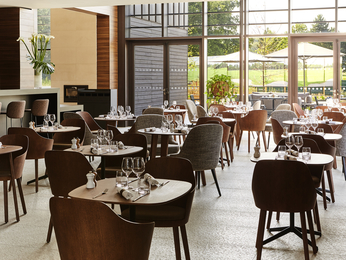
Book the Best Restaurants


Favorite restaurants of the moment in France
Inspiration

Collection
Top 10 Family-Friendly Restaurants



TROUVILLE-SUR-MER 14360
French, Terrace
4.1



MONTPELLIER 34000
Regional, Rooftop
4.1
(129)


ISSY LES MOULINEAUX 92130
Bistronomy, Terrace
4.6
(121)

Loudenvielle 65510
Regional, Terrace
3.6
(43)

Paris 75012
French, Terrace
4.6
(103)

Arles 13200
Mediterranean, Terrace
4.1
(201)




Collection

Average meal price
Average meal price calculated on the basis of starter and main course or main course and dessert, excluding drinks, menu and promotional offers. The average price is an estimate only, calculated according to the prices provided by the restaurant. Depending on the country, the average price may or may not include all taxes.
Average meal price
Average meal price calculated on the basis of starter and main course or main course and dessert, excluding drinks, menu and promotional offers. The average price is an estimate only, calculated according to the prices provided by the restaurant. Depending on the country, the average price may or may not include all taxes.
Average meal price
Average meal price calculated on the basis of starter and main course or main course and dessert, excluding drinks, menu and promotional offers. The average price is an estimate only, calculated according to the prices provided by the restaurant. Depending on the country, the average price may or may not include all taxes.
Average meal price
Average meal price calculated on the basis of starter and main course or main course and dessert, excluding drinks, menu and promotional offers. The average price is an estimate only, calculated according to the prices provided by the restaurant. Depending on the country, the average price may or may not include all taxes.
Average meal price
Average meal price calculated on the basis of starter and main course or main course and dessert, excluding drinks, menu and promotional offers. The average price is an estimate only, calculated according to the prices provided by the restaurant. Depending on the country, the average price may or may not include all taxes.
Average meal price
Average meal price calculated on the basis of starter and main course or main course and dessert, excluding drinks, menu and promotional offers. The average price is an estimate only, calculated according to the prices provided by the restaurant. Depending on the country, the average price may or may not include all taxes.
Average meal price
Average meal price calculated on the basis of starter and main course or main course and dessert, excluding drinks, menu and promotional offers. The average price is an estimate only, calculated according to the prices provided by the restaurant. Depending on the country, the average price may or may not include all taxes.
Average meal price
Average meal price calculated on the basis of starter and main course or main course and dessert, excluding drinks, menu and promotional offers. The average price is an estimate only, calculated according to the prices provided by the restaurant. Depending on the country, the average price may or may not include all taxes.
Average meal price
Average meal price calculated on the basis of starter and main course or main course and dessert, excluding drinks, menu and promotional offers. The average price is an estimate only, calculated according to the prices provided by the restaurant. Depending on the country, the average price may or may not include all taxes.
Average meal price
Average meal price calculated on the basis of starter and main course or main course and dessert, excluding drinks, menu and promotional offers. The average price is an estimate only, calculated according to the prices provided by the restaurant. Depending on the country, the average price may or may not include all taxes.
(226)